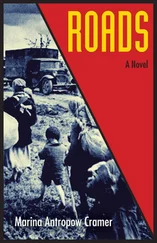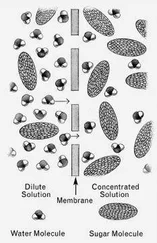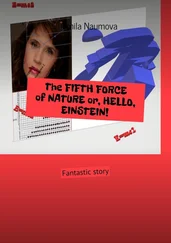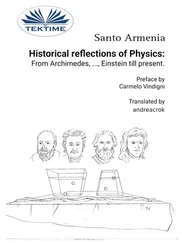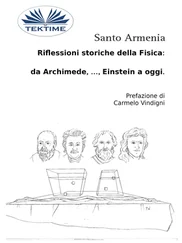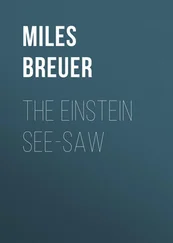George looked at his watch. “History alterations or not,” he said, “we have to focus our influence on Bush’s selection of a vice-presidential candidate.”
“Your system of government,” said Roger, “is still a deep mystery to me, I’m afraid. We’re here in New Orleans to affect the nomination of the Vice President, but I fail to understand the political priorities. Why is this vice-presidential nomination so important to us? It was my impression that the U.S. Vice President is a kind of administrative spare tire, a nonfunctional ceremonial position that is of no importance unless something happens to the President.”
“That’s certainly been the tradition,” said George, “but during the Carter and the Reagan Administrations a new tradition was established. The VP was given a leading role in the areas of science and space, in part to give him a somewhat visible activity that the President was glad to relinquish. Since the Carter-Mondale Administration, all the Science Advisors have worked closely with the VP in proposing new science initiatives and in defending the existing ones. And, of course, the VP normally has a good chance to become the next President, one way or another.”
“I see,” said Roger. “It’s the link to science policy.”
George nodded. “In our version of the future, George Bush selected Bob Dole as his Vice President. He’s a rather reserved, taciturn person, but it proved to be a great choice as far as the SSC was concerned. There were some significant SSC contractors in Kansas, and Dole was interested in the project. He retained powerful connections in the U.S. Congress, which he used to protect the SSC. And of course Dole was elected in his own right in ’96 and continued his SSC support. He may actually have saved the project.”
“And so,” said Roger, “we need to find a less effective alternative to Dole.”
“The less effective, the better,” said George. “Tell me about this person you and your computer picked out. What’s his name? Quade?”
“Quayle,” said Roger, “J. Danforth Quayle, U.S. senator from the state of Indiana. His father is a rich publisher who has pushed his son’s career. Hard. Dan is good-looking. He looks rather like a vacant Robert Redford. He makes a very good first impression, has a pretty wife and an attractive family, and is an excellent and dedicated golfer. He’s actually done quite well as a senator, with good press and no conspicuous screwups. Lately he’s been receiving press attention as a leading supporter of the Star Wars Initiative in the Senate. He comes from the right wing of the party and is one of the few VP finalists who can pass Senator Gordon Humphrey’s ‘True Conservative’ litmus test. And unlike Jack Kemp, he’s never offended George Bush. He perhaps has only one principal failing. He’s simply not very bright, even as judged by the rather undemanding standards of U.S. politics.”
“Are you sure about that?” asked George. “Many politicians in this country act dumber than they are, in order to stay on the right wavelength with the home folks.”
“In my one conversation with Dan,” said Roger, “we discussed the space program. He’s sincerely interested in it, but he seems to think that the planet Mars had canals with water in them. I’d suppose that he read Edgar Rice Burroughs as a child and never learned better, except that he never seems to have read any book for recreation except a few about golf. Perhaps his notion came from a comic book. It would be interesting to watch him in the role of leading defender of the SSC. He’d probably claim that it was being built to find a cure for cancer or something.”
“He sounds like just the man for us,” said George. “What did you Write for him when you were with him?”
“I boosted his output of an obscure human pheromone by two orders of magnitude. He would now reek of the stuff, except that no modern human is able to smell it. It comes from a feature of the human genome that was taken out of active service a million years ago when our sex and mating practices became nonseasonal. I Wrote a little targeted retrovirus and gave it to Danforth as we shook hands, when I was leaving after the interview.”
“Was that good for him?” George asked. “I would have thought you’d be impeded by your Hippocratic wiring.”
“It certainly did him no harm,” said Roger, “and I combined it with a neurocoordination boost that will improve his golf game. I also Wrote in a temporary boost in his synaptine level, so he’ll be a bit smarter for about the duration of the campaign. All very beneficial to the recipient, and therefore I could Write them without feeling any Hippocratic qualms. So now the rest is up to you.”
George consulted a piece of paper. “Quayle’s screening interview with Bob Kimmit is scheduled for tomorrow morning,” he said. “I’ve arranged to have dinner with Bob tonight, and I’ll be able to see Bush tomorrow to express my support for Quayle. If I provide a short-duration boost in sensitivity to the same pheromone for the two of them, we’ll be able to create instant rapport between them and Dan Quayle. Bush is going to love his new running mate.”
Roger laughed, then frowned. “But isn’t there a danger for the United States in what we’re doing? Suppose something happens to Bush, and Quayle has to actually function as President? We’re clouding the judgments of those who should be selecting the best person to serve as a substitute President.”
“We’ll deal with that problem if and when it arises,” said George. “We can boost Quayle’s intelligence and provide him with similarly intelligence-boosted advisors, or if necessary we could get him out of the way with a debilitating disease. It’s a small risk for the country and the world, compared to the danger of a probable Hive invasion. These are desperate times.”
Roger nodded.
There was a knock at the door, and George answered it.
A young man with a shock of unruly white-blond hair stood outside. He was wearing PetroGen coveralls and carrying a toolbox. “Excuse me, Mr. Preston,” he said. “I just thought you’d want to know that I’ve got all the cables and wirin’ installed in the strategy suite, so you folks can watch the convention next week and use those special computers and telephones, just like you wanted. Tested ever’thang myself, and it all works just fine.”
“That’s great, Whitey,” said George, patting him on the back. “I really appreciate your fast work.”
He closed the door and returned to the conference table.
“Was that…?” Roger asked.
“Yes,” said George, “that was none other than Whitey Buford. When I was busy buying up East Texas oil leases last year, I decided to hire his father, Ernest Buford, to help me. He did an excellent job, and he’s now a PetroGen executive. Whitey’s still in high school, but we hired him for the summer. He’s helping us with technical details for the convention. He’s a very bright kid. He told me that he plans to go to Texas A&M when he graduates from Waxahachie High and take a dual major in petroleum geology and molecular biology. I think it’s very likely that he’ll get a scholarship.” He smiled.
ROGER LOOKED AT HIS REFLECTION IN THE MIRRORED BACK of the car sun visor. He stared at the lines etched deeply into his face, the sparse gray hair, the puffy skin near the eyes. His direct control of his appearance was improving, but he’d never before used it for such extreme aging. Was he really going to look like this at age sixty-five? He looked older than his father. Perhaps it was the gray beard. He pressed his chin again, reassuring himself that it would remain in place.
Emerging from the Bentley, he retrieved his slim black leather attache case from the backseat and locked the doors. Then he strode across the small parking lot, down one side of the cloister, and into the quad. The old Cambridge buildings brought back pleasant memories of his student days. He identified himself to the porter, pushed through the massive entry doors of the building, and climbed the worn marble stairs to the second floor.
Читать дальше

